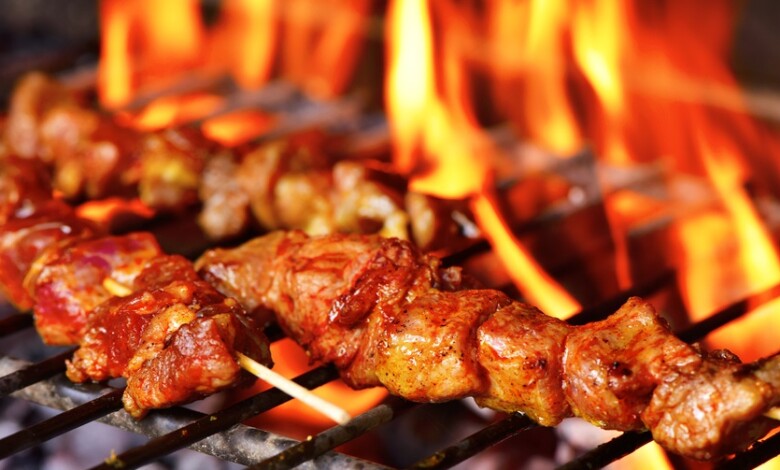
By Shahista Namale
The tantalizing aroma of roasting meat wafts through the air at Lukaya trading center, drawing in travellers along the Kampala-Masaka highway. This beloved roadside roasted meat, known as mchomo, has become an essential part of the journey for many Ugandans.
But medical experts warn this popular snack could be serving up dangerous foodborne illnesses alongside its flavourful bites.
Mchomo, a popular Ugandan street food, is roasted meat, typically beef, goat, or chicken, grilled on skewers often enjoyed as a quick snack.
At a bustling muchomo stand, Uthman Mubiru carefully inspects a skewer before purchasing.
“Every time I travel to Masaka, I buy roasted meat at Lukaya because it is fresh and tasty. However, I learned my lesson last year after eating undercooked meat,” the 32-year-old from Masanafu recounts. “I was sick all night with vomiting and diarrhea. Now I only buy from trusted vendors.”
His caution comes from painful experience, but many customers grab skewers without hesitation during peak hours.
Eating raw meat carries significant health risks due to the potential presence of harmful bacteria and parasites. These pathogens can cause foodborne illnesses, also known as food poisoning, with symptoms ranging from mild discomfort to severe complications.
Dr. Sylvia Baluka from Makerere University’s College of Veterinary Medicine explains the risks.
“From slaughterhouse to roadside grill, there are multiple contamination points. We’re talking about bacteria like E. coli and salmonella that can survive in undercooked meat,” she told The Friday Call in an interview.
Proper cooking requires internal temperatures of at least 70°C to kill pathogens – a standard often missed in the rush to serve customers.
Symptoms of food poisoning may range from mild to severe and vary depending on the pathogens. The most common symptoms include vomiting, diarrhoea, abdominal pain and fever, yet more severe or even life-threatening symptoms may occur in the susceptible populations.
Dr Baluka adds that Food handlers may also be a source of contamination, if they do not observe good hygienic practices when handling foods, when raw foods involving manual handling.
She advises that to get rid of pathogens potentially present in raw foods, cooking food thoroughly is of paramount importance as heat can effectively kill the pathogens.
Our investigation reveals vulnerabilities throughout the mchomo supply chain. Animals are frequently butchered in unregulated conditions, meat transportation often lacks proper refrigeration, and vendors commonly handle both money and meat without washing hands. The tropical climate further accelerates bacterial growth in improperly stored meat.
While the Uganda National Bureau of Standards has food safety guidelines, enforcement remains inconsistent for street vendors.
For now, consumers must take precautions.
Experts advise visually inspecting meat for even cooking, inquiring about vendors’ sourcing practices, avoiding meat that’s been sitting out, and being especially careful if you’re pregnant, elderly, or have a weakened immune system.
As dusk falls on Lukaya’s mchomo stands, the grills continue their sizzling service.
For cautious consumers like Uthman, the treat remains worth the extra vigilance.







